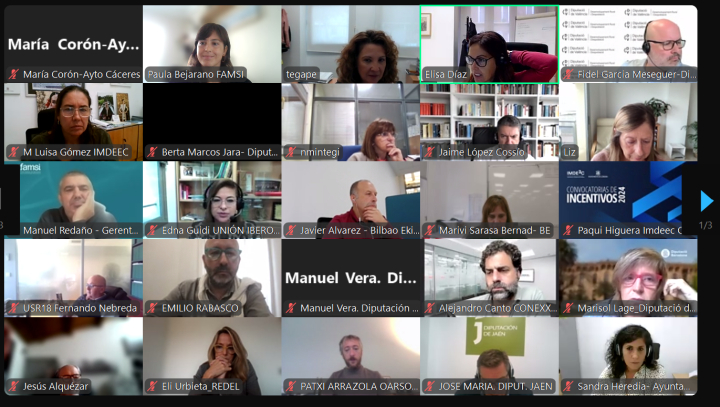The meeting highlighted how, through the WFLED, development networks can promote new perspectives for more equitable and sustainable territorial development.
Last Friday, November 8, various networks and entities linked to territorial development held an online seminar to present the sixth edition of the World Forum on Local Economic Development (WFLED), which will take place in Seville from April 1 to 4, 2025. This virtual event, organized by Cities for Employment, the Network of Socially Responsible Territories (RETOS), the Network of Cities of Science and Innovation (Red Innpulso), the Network of Entities for Local Development (REDEL) and the Andalusian Fund of Municipalities for International Solidarity (FAMSI), brought together more than 50 state and local representatives.
During the briefing, Manuel Redaño, manager of FAMSI, was in charge of detailing the key objectives and approaches of the forum, highlighting the eminently territorial nature of the event. The sixth edition of WFLED will address priority issues such as the triple transition —digital, social and economic—, social justice, training for employment, care and the social and solidarity economy. Emphasis will be placed on a “new economy that cares” from the territory, promoting inclusive and sustainable development.
The event also facilitated an open dialogue among attendees, who contributed perspectives to enrich the content of the forum and promote the collaboration of development networks. This edition of the forum, sponsored by the International Committee and led by FAMSI together with the United Nations Development Programme (UNDP), the International Labour Organization (ILO), United Cities and Local Governments (UCLG), ORU-Fogar and the World Cities Development Forum (FMDV), aims to be an inclusive space for representatives of governments at different levels, civil society organizations and the private sector.
The meeting concluded by highlighting the need to create sustainable alliances between governments, NGOs and the community at large to move towards more equitable and collaborative territorial development.


